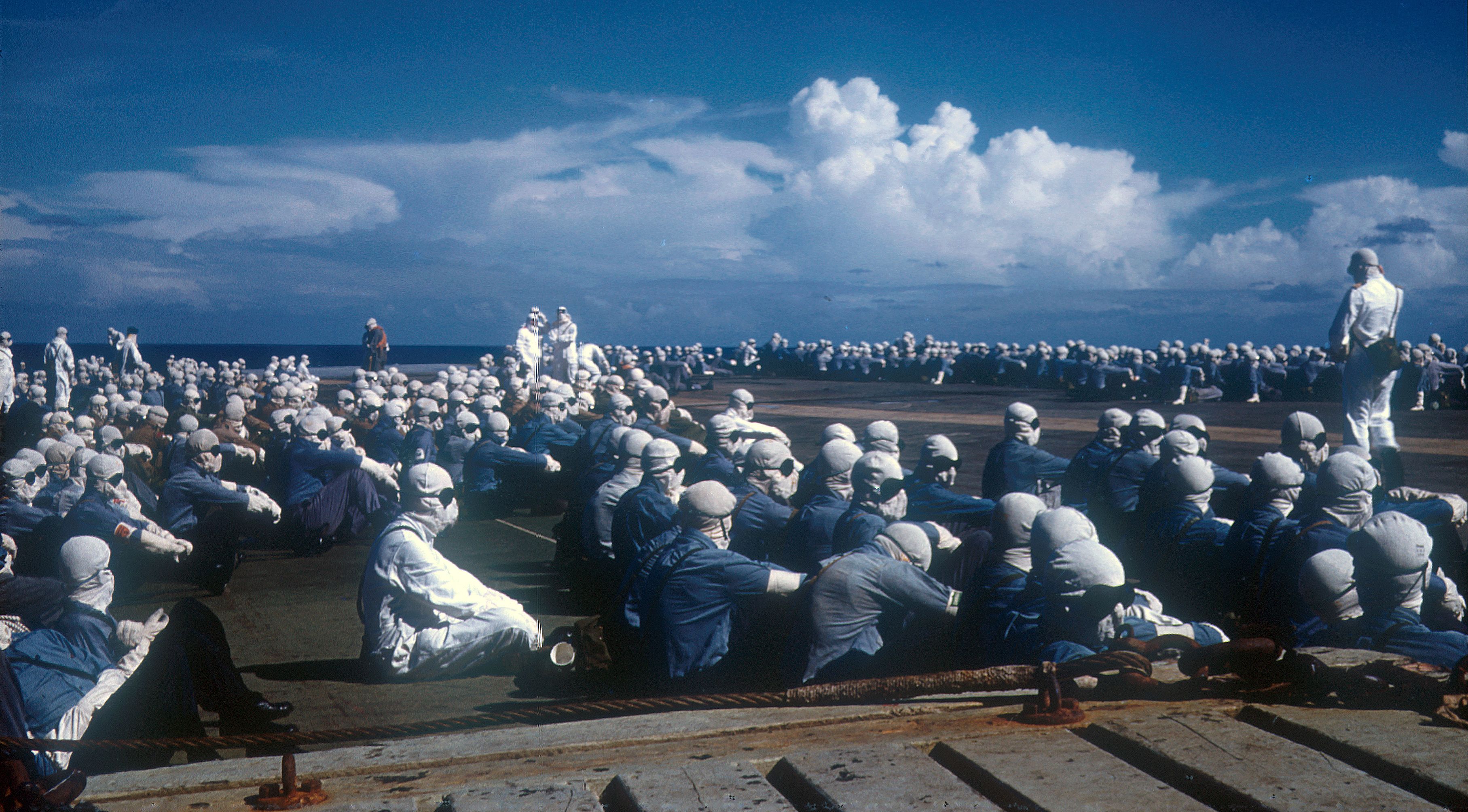The Voices of British Nuclear Test Veterans project documents the experiences of military and civilian personnel who took part in British nuclear test operations between 1952 and 1967. It makes a unique contribution to postwar social history, recognising the backgrounds, careers and struggles of the men who helped make Britain a nuclear power.
Forty-one oral history interviews were recorded for ‘An Oral History of British Nuclear Test Veterans’. This oral history project was led by researchers from the University of South Wales and the University of Liverpool, and archived by National Life Stories, the oral history charity at the British Library. The project was funded by the Office for Veterans’ Affairs in 2023, not long after the then Prime Minister, Rishi Sunak, announced a ‘Nuclear Test Medal’ for participants in military operations between 1952 and 1967.
Eight articles have been created by the project team and other specialist contributors using interview extracts from these recordings to reflect on aspects of veterans’ experiences as they look back in their eighties and nineties. The articles are organised around veterans’ encounters with nuclear weapons, from their recruitment to the test sites through to their reflections on nuclear weapons and how their service should be remembered today. By structuring veterans’ testimony in this way, the articles illustrate how social factors such as age, class, family and health have shaped veterans’ understandings of their nuclear experience. From the sublime moment of a nuclear detonation through to persistent worries about radioactive fallout.
Oral history is an ideal medium to capture memories of the testing programme. This web resource presents 65 audio extracts from interviews with 41 veterans. The research team conducted interviews with former servicemen and officers from the British Army, Royal Air Force and Royal Navy, as well as with a civilian worker, members of the merchant navy and a nuclear physicist. The interviews highlight links between these roles on test sites in Australia and the Pacific.
Each interview extract is transcribed and illustrated with a photograph. Many of the images on the website come from interviewees’ personal photo albums that are not otherwise available. The articles are written for the general reader but will also appeal to those with more specialist knowledge of the topics covered. Interviewee biographies provide further context for each veteran’s life and role in the tests.
Interview extracts on Voices of British Nuclear Test Veterans are accompanied by information about the full recordings. All the digital interviews, averaging two to three hours in length, have been archived in perpetuity at the British Library. We invite you to explore further information about oral history at the British Library.
National Life Stories is very grateful to the Office for Veterans’ Affairs for making this website possible.
Oral history use
Key oral history collection
This web resource draws on an oral history collection archived at the British Library. ‘An Oral History of British Nuclear Test Veterans’ was led by researchers from the University of South Wales and the University of Liverpool, and archived by National Life Stories at the British Library. The interviews were conducted between 2023 and 2025.
Access and reuse guidelines
Articles on Voices of British Nuclear Test Veterans are published using a creative commons license: CC BY-NC. This allows users to share and reuse the written content for non-commercial purposes, as long as the copyright holder is given full attribution. Further information is available on the Creative Commons website.
Images and photographs published on Voices of British Nuclear Test Veterans have been sourced from a range of private collections and archives. Please refer to credit information attached to individual images for further details. Images are not licensed for reuse.
Further resources
The Centre for Health Effects of Radiological and Chemical Agents (CHRC) undertakes and shares multi-disciplinary research particular to the British nuclear test veteran community, their genomic health and the impact of uncertainty on health more broadly. Peer-reviewed publications with associated lay summaries, peer-reviewed articles and independent, evidence-based information are available within the Knowledge Hub.
People and funders
Funder
The Office for Veterans’ Affairs
Authors
Fiona Bowler, Joshua Bushen, Laura Considine, Elin Doyle, Chris Hill, Jonathan Hogg, Alan Owen and Elizabeth Tynan.
Individuals and archives for providing images for use on Voices of British Nuclear Test Veterans.
The project team would like to thank Professor Rhona Anderson (Brunel University), Susie Boniface (Daily Mirror), Nigel Heaps (Nuclear Community Charity Fund), Dr Sally Horrocks (University of Leicester), Dr Grace Huxford (University of Bristol), Alan Owen (LABRATS) and Wesley Perriman (BNTVA Museum) for their ongoing support.
National Life Stories would like to thank British Library audio engineer Karl Jenkins for his expertise, the authors and those who have provided and helped to source images. Our continued thanks go to the many interviewees whose voices we feature – without their testimony this web resource would simply not have been possible.
Project team
Chris Hill
Principal Investigator for ‘An Oral History of British Nuclear Test Veterans’, University of South Wales
Jon Hogg
Co-Investigator for ‘An Oral History of British Nuclear Test Veterans’, University of Liverpool
Joshua Bushen
Research Assistant for ‘An Oral History of British Nuclear Test Veterans’, University of South Wales
Camille Johnston
Website Consultant, National Life Stories at the British Library
Mary Stewart
Director of National Life Stories & Lead Curator, Oral History, The British Library
Madeline White
Deputy Director of National Life Stories & Curator, Oral History, The British Library
With thanks to Fiona Bowler (Postdoctoral Researcher, University of South Wales) for her work on the initial stages of planning this web resource.


